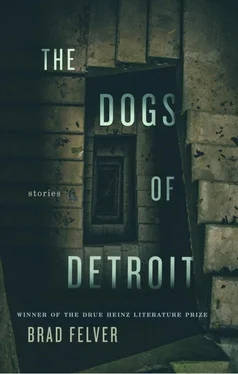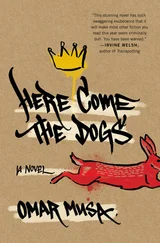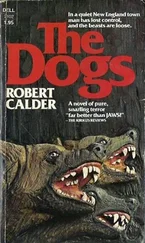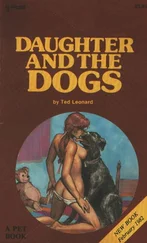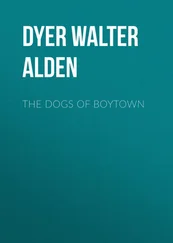This is when he would usually attack his father, loose that confused anger onto the world where it might dissolve. But there is no one here, no violence he can inflict. He tries to think of brutal things to do to the world, but none come to him. It is as if some awful weariness has flattened him. How long has he been here? When did he last sleep? Everything is tertiary colors pulsing from a fuzzy black background, moonlight, haze.
When he moves away from the wall, it is green moss everywhere. Where there was snow, now there is moss. Plush, spongey. Her prints stamped into it. They should be his own prints, but they are hers. The deeper trenches at the ridges, the veiny webs on the soles, the short span between each heel strike. They are hers. He follows them, careful not to trample. They lead up a grand staircase, through a series of offices, over creaking wood floors and concrete ground into gravel. Silence, all silence and the cutting reek of menthol.
He follows the trail, follows the smell. They tug him along as if he wears a belay line. Soon he is trotting, climbing upward, ignoring the stomping noise he makes, the commotion of disturbing a closed system. He emerges on the roof, a surface so vast it seems like he is back on the ground. He meanders among a grove of cottonwoods that poke through the concrete. They are leafless, their icy limbs shaking in the wind, clattering and creaking. The tang of menthol grows stronger. He coughs and has to wipe away the hot seep from his eye. He doesn’t trust this, none of this. To the east, a small breech in the darkness, the sun climbing toward the horizon, the moonlight diffusing. The scent dissipates. He turns and looks behind him. No moss, only snow, pure and untouched but for his fat mashed footprints. He gazes around, everything blurry like he is under water. There is nothing here, not his mother, not even traces of her.
Another high-pitched wail, closer this time, washing over the whole rooftop. Silence for a few heartbeats. Silence. And then the response, an answer that seems to emanate from the cottonwood grove behind him. The limbs clatter in the wind, camouflaging its stalkers.
Polk walks on the sides of his feet to dampen the sound, but his commotion still echoes about. He moves to the edge, looks down at the vast fields below. Then he sees it: glowing prints. The paint. Whether it is the foggy haze, moonlight, and sunrise occupying the same world, or perhaps his own split eyelid distorting things, or if it is perhaps God himself, he does not know. But those painted tracks glow. All those tertiary colors erupting from the ground. Colors that do not belong to this season or to this place.
Polk sits on the edge, his feet dangling. He stares at the painted prints. It is the prettiest thing he has ever seen, he cannot look away, like staring into the belly of a fire. New colors. He loses track of time, just stares, his breaths coming quicker. They seem alive, crawling tracks, blurry emissions from the core of the earth.
“Is this what you wanted me to see?” he says aloud, his voice bleating through the hush. He waits for a response he knows is not coming. After all this? Mrs. Roudebush was wrong.
Polk hears the soft padding of paws before he sees the dog. A thin squeaking sound, fresh snow being tamped down. Not so much a palpable noise as an echo with no architect. He is afraid to turn around, to see what he already knows is there. When he does turn, he first notices the ribcage bulging through skin and fur. Such hunger. That distinctive brindle pattern, writhing, uncoiling around the torso. The low rumbling of anger, not a simple growl but slow-burning fury surfacing. Behind it, more movement in the cottonwood grove, a slow swaying not caused by wind. Polk stands slowly, his heels hanging over the edge of the roofline, afraid to make any quick movements. Is this about survival? Or is it revenge? The pit bull encroaches like a lurching shadow, deliberate and menacing steps, its muscled haunches tightly drawn and trembling. Polk edges along the roofline, but there is no retreat, no escape.
He turns away, looks back down at the glowing prints. He can see very far, miles, can see the individual glass panes of windows in the skyscrapers downtown and the mossy roofs of hundreds of houses on the East Side. All the city is out there, yawning itself awake. He looks down. Is it far enough to kill him? Or just to maim? To break his body apart. He pictures this for a moment, tries to feel the swelling terror in his gut as he plummets, the piercing ripple shooting through his legs, collapsing his body into an accordion when he strikes ground. Would this be the moment of relief? He wonders when the pain would strike, how long after impact? One second? Five? Never? He wonders about the precise instant when life stops and death starts. He wonders about that moment for his mother, for all the dogs he has killed.
The low rumbling draws closer, so close it seems to emanate from Polk himself. He squats down, his back to the pit bull, cinching his body into a defensive crouch. He squeezes, fights against trembling. And yet some strange joy tempers the fear, like a return to the world. He closes his good eye and waits, several ragged breaths he waits.
When he opens his eye again he sees in the distance the baseball field, the chain-link fence of its backstop. That small scoop of sledding hill next to it, so much smaller than he remembers. There it is, no so far away, a handful of blocks to the west. Has it been there this whole time? His mother pushing him down, his father dragging him back up. And then he is falling, skittering downward, spinning in some wobbly oblong orbit, the pull of gravity on his stomach. He will crash, he can feel it, he is moving too fast, out of control. Once unleashed, gravity takes over, no stopping it. Blood pulses into his head and he clamps his eyes shut and multicolored stars pour over him like a meteor shower. A piercing throb. His breath catches and he clenches, hardening muscle into concrete, bracing for impact, and when it comes, it jars the breath loose from him, and all seems lost until his father pulls him up and brushes the snow from his face and says, Should we go again?
“Queen Elizabeth” was originally published in One Story 218. Also, this story is forthcoming in Laura Furman, ed., The O. Henry Prize Stories 2018 (New York: Anchor Books, 2018).
“Throwing Leather” was originally published in Ascent (September 2010).
“Evolution of the Mule” was originally published in Beloit Fiction Journal 25. Also, this story was anthologized in Joe Taylor, ed., Tartts Seven: Incisive Fiction from Emerging Writers (Livingston, AL: Livingston Press, 2016).
“The Era of Good Feelings” was originally published in Midwestern Gothic 20.
“How to Throw a Punch” was originally published in The Adroit Journal 6.
“Unicorn Stew” was originally published in The Minnesota Review 78.
“Stones We Throw” was originally published in Wilderness House Literary Review 8, no. 4.
“In the Walls” was originally published in Atticus Review 2, no. 34.
“Out of the Bronx” was originally published in Zone 3 20, no. 1.
“Hide-and-Seek” was originally published in Sequestrum (Spring 2015).
“Country Lepers” was originally published in The Summerset Review 41.
“Praemonitus, Praemunitus” was originally published in Ostrich Review 4.
“Patriots” was originally published in Harpur Palate 14, no. 2.
“The Dogs of Detroit” was originally published in Colorado Review 41, no. 2.
Writing and publishing a book is such a collaborative effort, though it always seems that the author gets all the credit. I’ve had hundreds of people guide me over the years, and while I can’t thank all of them here, I would like to offer a few words of thanks.
Читать дальше
